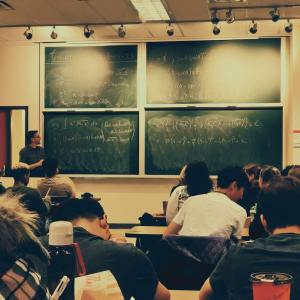Probability in Math and Physics: Concepts, Techniques, and Applications
The enchanting web of uncertainty and chance weaves through our lives, presenting constant surprises and challenges that can only be unveiled through the captivating domain of probability.
As passionate and devoted mathematics and physics tutors, we delight in guiding you through the mesmerizing landscape of probability theory, revealing its compelling foundations, potent techniques, and transformative applications that will not only enrich your academic achievements but also bolster your understanding of the complex dynamics that underlie the world around us.
As we venture deeper into the realm of probability, we will unveil a treasure trove of real-world applications that underscore its importance in various disciplines, including statistics, game theory, and quantum mechanics. By mastering the intricacies of probability theory, you will unlock boundless opportunities for intellectual development and equip yourself with the toolbox necessary to tackle a plethora of fascinating challenges throughout your academic and professional pursuits.
Together, we take pride in fostering your intellectual curiosity and nurturing your growth, offering unwavering support and expert insights as you immerse yourself in the fascinating world of probability. As we embark on our thrilling journey, we will revolutionize your perception of uncertainty and chance, uncovering the alluring beauty hidden deep within the mathematics of probability.
Foundations of Probability: Events, Sample Spaces, and Probability Measures
Our journey into the captivating world of probability begins with a solid understanding of its fundamental concepts:
- Events: An event is a specific outcome or a set of outcomes from a random experiment or process. Grasping the nature of events is essential for determining the probabilities of various scenarios, shedding light on the possibilities and implications of randomness.
- Sample Spaces: A sample space represents the collection of all possible outcomes from a random experiment or process. By comprehending sample spaces, you lay the foundation for calculating probabilities and investigating the complex relationships between events.
- Probability Measures: Probability measures are numerical values that represent the likelihood of specific events occurring. Understanding probability measures and their properties enables you to make informed predictions, weigh risks, and manage uncertainty in diverse mathematical and real-world problems.
Essential Techniques for Calculating Probabilities
Mastering probability theory necessitates proficiency in several powerful techniques for calculating probabilities:
- Counting Principle: The counting principle helps determine the total number of possible outcomes in a random experiment or process, serving as a crucial tool for solving probability problems. By employing the counting principle, you can swiftly enumerate possibilities and streamline your probability calculations.
- Permutations and Combinations: Permutations and combinations are essential techniques for calculating the number of ways to arrange or select items, which are instrumental in determining probabilities. Mastering these techniques will allow you to tackle a wide array of probability problems and enhance your understanding of the interplay between events and likelihoods.
- Conditional Probability: Conditional probability is the probability of an event occurring, given that another event has occurred. Grasping the concept of conditional probability and the powerful Bayes' theorem helps you navigate complex interdependencies in probabilistic scenarios, thereby honing your problem-solving abilities and boosting your confidence in mathematics and physics.
Real-World Applications of Probability Theory
As you delve deeper into the world of probability, you will discover its transformative applications in various fields and disciplines:
- Statistics: Probability plays a vital role in the field of statistics, providing the foundations for the analysis, interpretation, and presentation of data. From hypothesis testing to confidence intervals and regression analysis, probability empowers statisticians with the tools necessary to extract insights, recognize patterns, and unveil the hidden truths beneath vast seas of data
- Game Theory: Game theory – the study of strategic decision-making – relies heavily on probability to analyze and optimize interactions between players in various settings, from economics and politics to sports and recreation. By leveraging the power of probability, game theorists can illuminate optimal strategies, predict behaviors, and uncover the delicate interplay of competition and cooperation within complex paradigms.
- Quantum Mechanics: In the realm of quantum mechanics, probability assumes a central role, as particles and systems exhibit inherently probabilistic behavior in accordance with the wave-particle duality and Heisenberg's Uncertainty Principle. By embracing the language of probability, physicists can penetrate the enigmatic world of subatomic phenomena, deciphering the fundamental principles that govern the fabric of our reality.
Conclusion
Our enthralling journey into the realm of probability has shed light on its captivating foundations, potent techniques, and transformative applications that infuse our understanding of mathematics and physics education with a newfound appreciation for the enchanting dance of uncertainty and chance. By immersing ourselves in the mesmerizing world of events, sample spaces, and probability measures, we unlock the doors to a dazzling array of problem-solving strategies, real-world applications, and intellectual pursuits that reveal the harmony hidden deep within the mathematics of probability.
Explore the fascinating challenges and profound beauty inherent in the study of probability with the expert insights and steadfast guidance of Alexander Tutoring, your reliable math and physics tutor. Contact us today to learn more.




